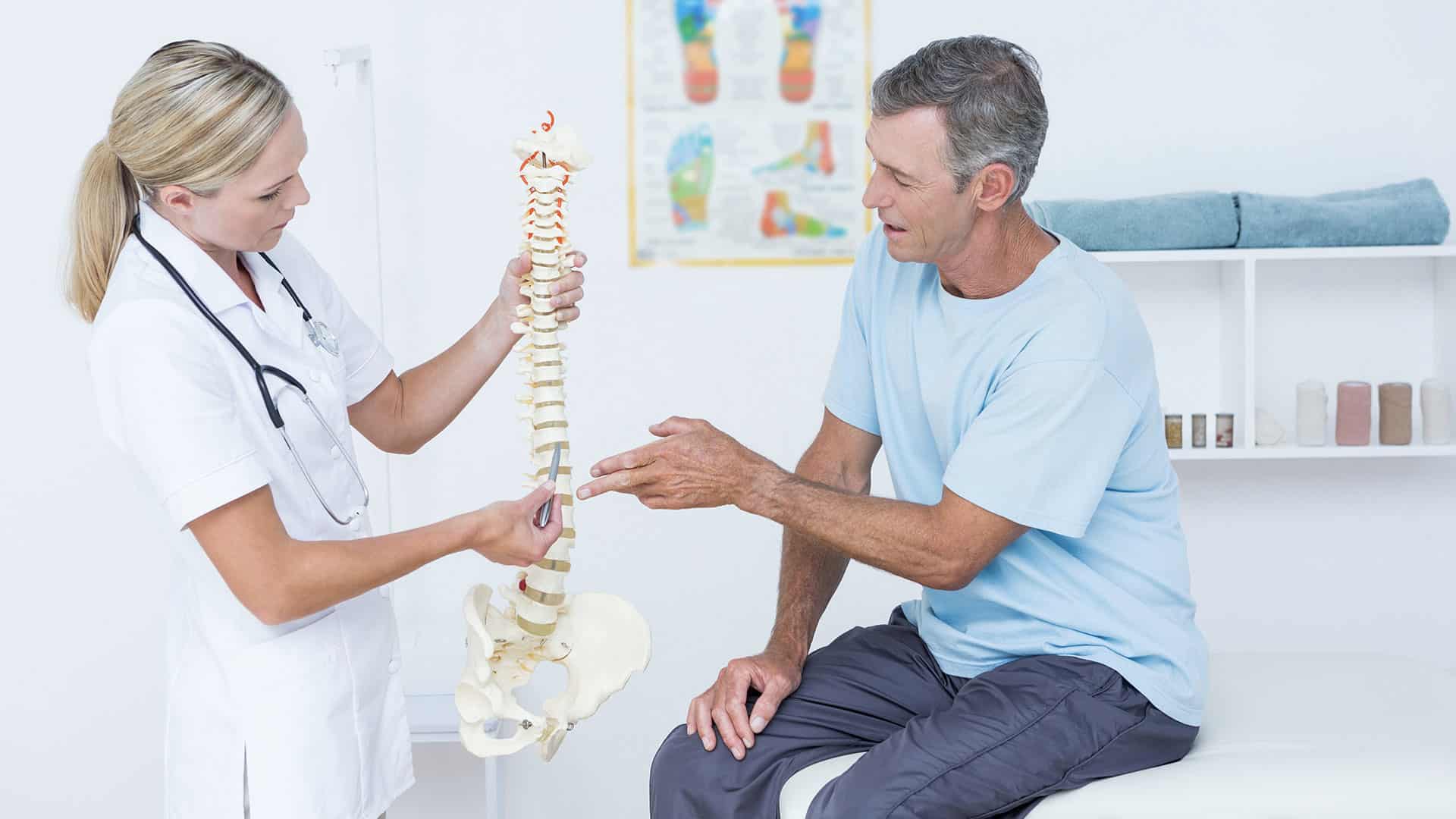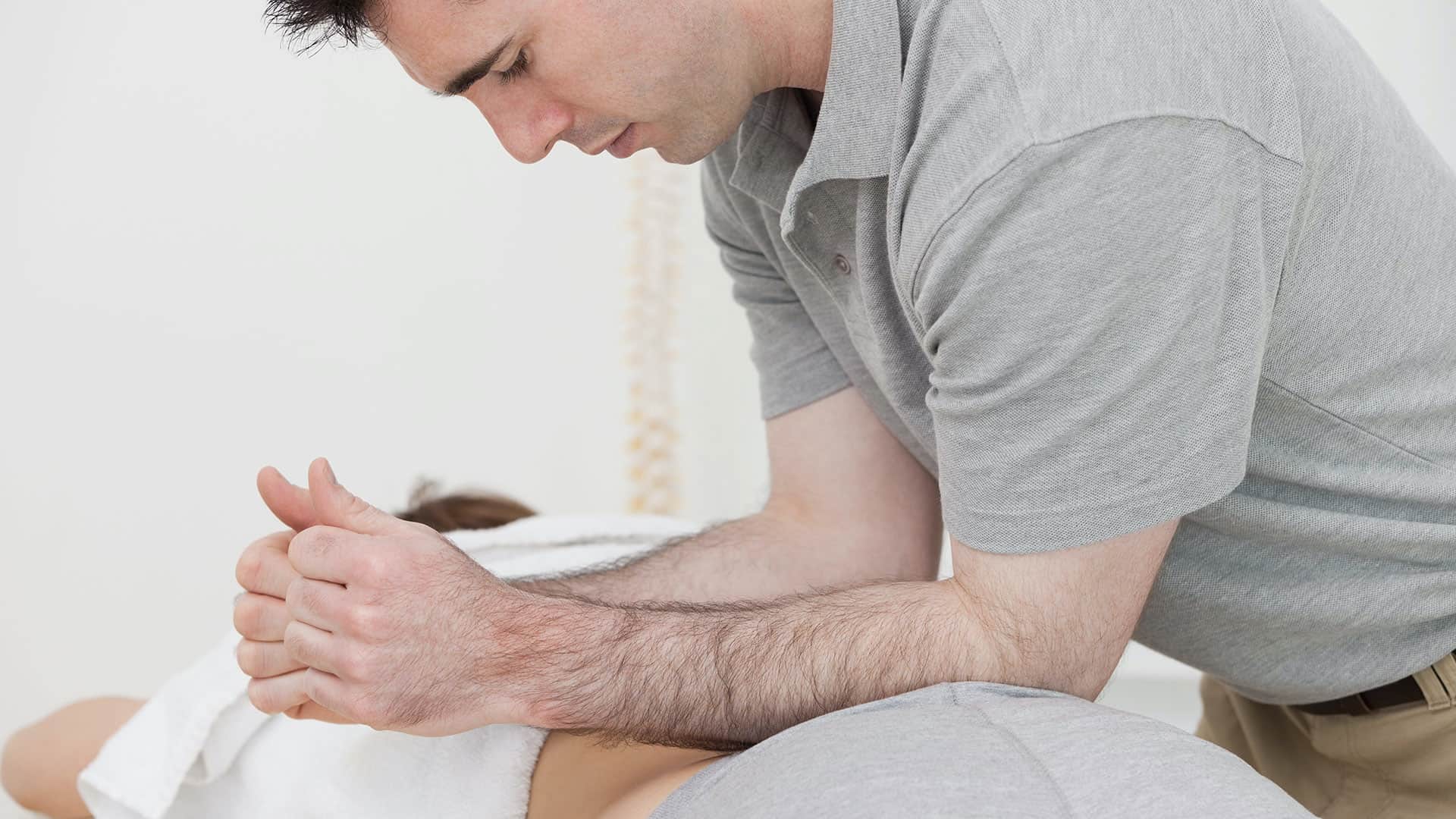The discs in your spine are designed to support your body as you work, play, and sleep. Unfortunately, sometimes these discs move out of their correct slots. When this happens, the nucleus of a disc pushes through the disc's rubbery exterior. This can damage your spinal canal and also result in nerve compression or other unpleasant issues.
Some people take a wait-and-see approach toward spinal concerns, but a herniated disc is unlikely to resolve on its own. In fact, ignoring disc herniation can increase symptoms, and in serious cases, even result in permanent nerve damage. Don't slack on getting the care you need if you suspect you have a herniated disc. Give the team at Northeast Spine and Sports Medicine a call so we can help you choose the right treatment for your spinal pain.
What are the Symptoms of Disc Herniation?

When a disc first slips out of place, you may not notice anything is amiss. Over time, though, the pain may become intense or even excruciating. You may also experience problems in your legs or feet.
Here are some common symptoms associated with disc herniation:
- Pain in your arm, shoulder, leg or foot
- Muscle weakness
- Tingling or paralysis
- Pain that gets worse after sitting, standing, or sleeping
- Sciatica
If your condition worsens, you may have trouble urinating or having a bowel movement. Seek medical care right away if this happens, as this can quickly become an emergency situation.
How Is a Herniated Disc Diagnosed?

When a patient has symptoms like the ones listed above, we check for disc herniation using digital imaging methods. These may include an MRI or X-ray. We also review records from other providers, including your primary care physician or emergency room staff.
If herniation is verified, we work with you to develop a treatment plan. This may include lifestyle changes, noninvasive medical care, or surgical procedures. Many of our patients find relief without undergoing surgery.
What are the Treatment Options for Herniated Discs?

We create a unique treatment plan for each patient, so there's no universal treatment plan for herniated discs. Some patients feel better after a few chiropractic adjustments, while others require months of care with the team at Northeast Spine and Sports Medicine. The duration and frequency of your treatment plan is based on the severity of your symptoms. We want to help you get back to feeling like yourself again, whether that takes a couple of days or requires a long-term treatment plan.
Chiropractic Care
Disc herniation can occur in your neck or back when a disc moves out of its designated spot. When this happens, a skilled chiropractor can gently push the disc back in place. This is known as a spinal manipulation or chiropractic adjustment.
Patients often ask how many visits it will take for herniation to go away. You may just need a few visits for mild herniation, but a severe case will likely take months to heal. You may also receive other treatments during this time, such as spinal decompression or physical therapy.
Physical Therapy
Physical therapy is another way our team addresses the symptoms of herniated discs. Your therapist will help you stretch tight muscles near the herniated disc on your own or with equipment. This can help reduce or eliminate nerve compression.
If you want to speed up your recovery, talk to your physical therapist about home exercises. There may be some activities you can do on your own time to help heal your spine. It depends on how badly your disc is herniated, as physical activity can make some patients feel worse.
Spinal Decompression
Spinal decompression works miracles for many people with disc herniation. New patients are often hesitant to lay on the decompression table and wear the harness, but their fear quickly fades after the first session. Patients often describe the experience as relaxing or calming, and some patients even take a nap while the machine is moving.
Decompression works by gently stretching your spine as you lay in place. This gives discs a chance to slip back into their correct sockets. It also helps reduce the pain of nerve compression.
Therapeutic Injections
When noninvasive methods don't deliver the results you want, consider therapeutic injections for your pain. There are several options available depending on the location of your herniated disc. Two options that may benefit you include facet injections and spinal epidural injections. Facet injections reduce inflammation in an infected joint. Spinal epidural injections help decrease pain in your lower back and relieve sciatica.
Surgical Procedures
Unfortunately, sometimes surgery is the only option for people with badly herniated discs. When this happens, artificial disc surgery is a potential option. During this procedure, your surgeon removes the injured disc and replaces it with a disc crafted from metal and plastic.
Spinal fusion is another option where your vertebrae are fused together in your spine so that discs remain where they belong. A discectomy and laminectomy are additional options you can consider. If you have questions about herniated disc surgery, contact the team at our Surgical Center in Lakewood.
How Can You Reduce Your Risk of Disc Herniation?

Some factors that may cause disc herniation, such as genetics, are beyond your control. However, you can keep your spine in tip-top shape by:
- Maintaining a healthy weight
- Practicing good posture
- Lifting with your legs rather than your back
- Sleeping with a wedge pillow under your knees or between your legs
- Avoiding smoking, as smoke can decrease oxygen supply to your spine and accelerate the degeneration process
We Offer Pain Management for Herniated Discs
Don't let a herniated disc keep you from doing the things you enjoy. Give us a call so we can schedule an appointment at one of our many New Jersey offices. We have locations in Ocean County and Monmouth County with morning, afternoon, and early evening hours. Our compassionate team will explain all of your treatment options before helping you choose the right plan for your needs.

